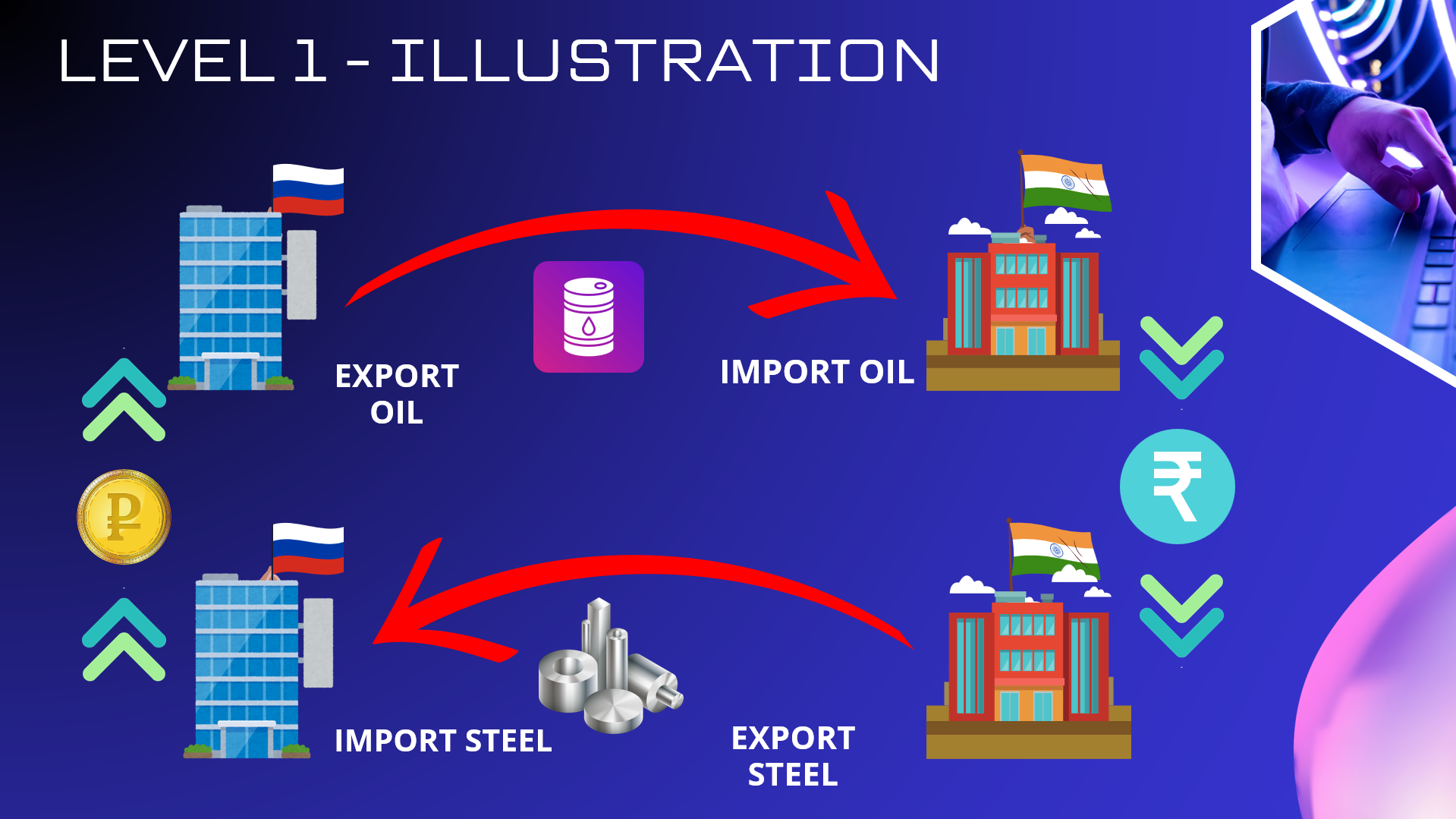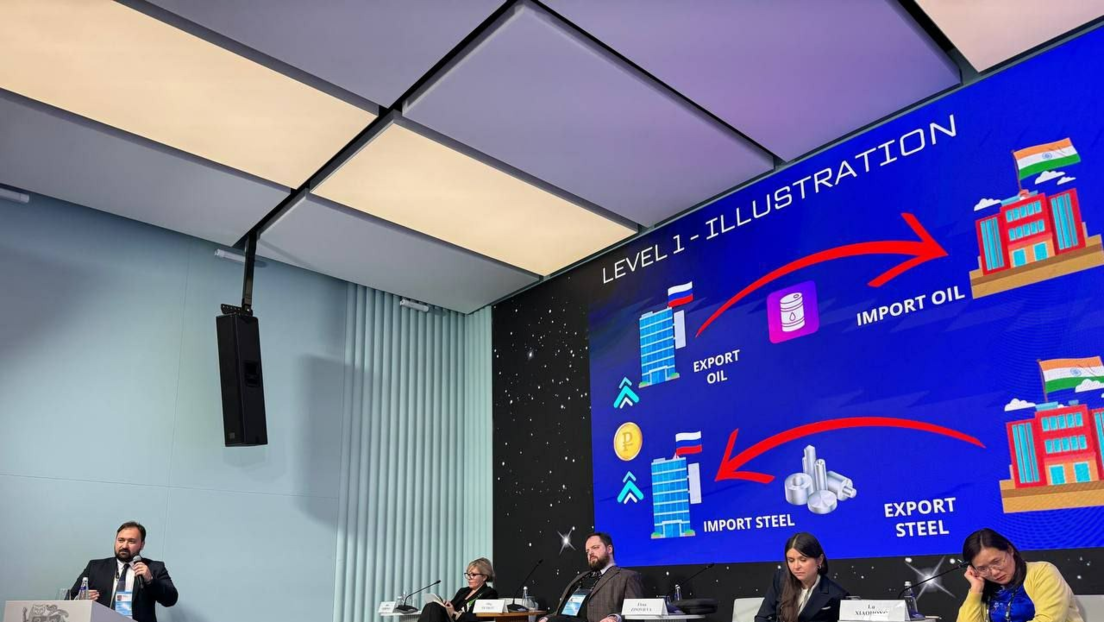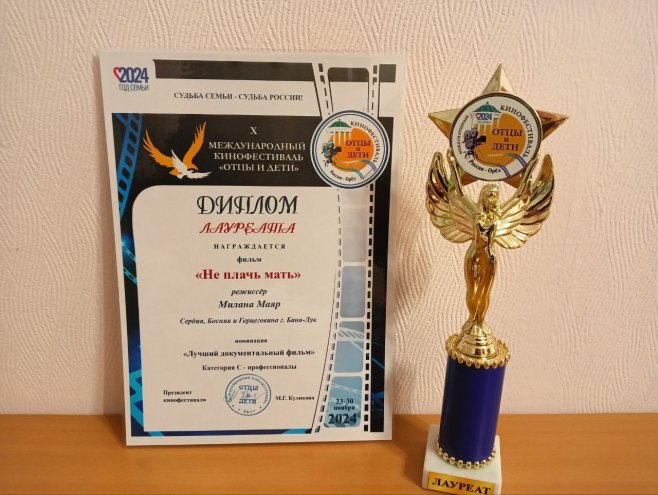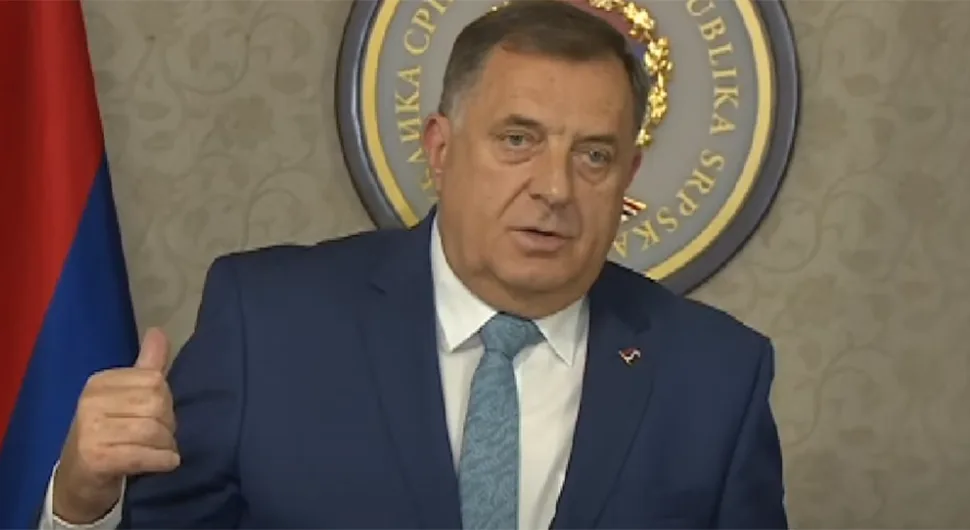By enabling sanctioned countries to trade freely with the help of modern technology, we are laying the foundation for a new economic order that does not rely on financial centers in the U.S. and EU.
In light of global economic sanctions and a policy based on the dominance of the Western financial system, Neven Đenadija, an external associate at the Center for Socio-Political Research of Republika Srpska and a PhD candidate at the prestigious Moscow State Institute of International Relations, has devised an innovative platform. This platform could help sanctioned countries and entities bypass the SWIFT system and Western currencies, primarily the dollar and euro.
This project, named BRICS SWAPAI, uses artificial intelligence (AI) and blockchain technology to enable international trade and financial transactions without relying on Western banking mechanisms. This breakthrough idea was first presented at the international scientific symposium “Creating the Future” in Moscow.
What is BRICS SWAPAI?
BRICS SWAPAI is a platform that enables sanctioned states and their companies to conduct international trade transactions and avoid blockades imposed by international financial institutions. The main idea is to facilitate trade through a “barter” system, where goods are exchanged without the use of dollars or euros. Additionally, transactions would be conducted in domestic currencies, allowing the economies of sanctioned countries to continue operating in the international trading environment.
“The system is conceived as a response to the growing challenges that sanctions present for countries like Russia, China, or Iran, as well as their trading partners. The platform is designed to help these countries continue their trade activities while allowing the use of modern technologies such as AI to optimize trade transactions,” Đenadija explained to RT Balkan.
Đenadija explains that BRICS SWAPAI rests on four key pillars, with artificial intelligence (AI) as one of its fundamental components.
Technical solutions include:
- AI matching and balancing system: This system aims to identify the best possible trade offers from companies in different countries participating in the system. Additionally, this system balances the values of imports, exports, and liquidity for local clearing banks.
- Domestic clearing banks: These banks serve as financial bridges between local companies, the AI matching system, and the central BRICS bank. Each BRICS member country would have one such bank backed by a state deposit, operating in its domestic currency. The banks would receive payments for imported goods from local firms and make payments to local firms exporting to other BRICS members. They would also serve as branches of the central BRICS bank.
- Central BRICS bank: This institution would act as a guarantor for trade transactions, issuing a gold-backed digital currency to ensure stability and security of trade contracts.
- National data centers: Formed within the economic ministries of member countries, these centers facilitate the collection and verification of local company offers, making it easier for companies to integrate into the AI matching system.
How would this seemingly complex system work in practice?
For instance, company A from Russia exports oil, while company B from Russia seeks to import steel. The AI system calculates and finds that company C in India wants that quantity of oil, while company D in India can export that quantity of steel within the given timeframe.
“These four companies sign barter and exchange contracts, with agreements placed in a blockchain smart contract system where the central BRICS bank is the guarantor. The terms and transportation costs are agreed upon, and the goods are delivered. Then, the Russian company A, which exported oil to India, receives payment from the Russian company B that imported steel. The transaction is handled domestically in rubles, and countries may agree not to apply customs tariffs in such exchanges, while VAT is regularly included in the local payment system,” Đenadija explained to RT Balkan.
On the other side, the Indian company that exported steel receives payment from the Indian company that imported oil. “Payment is handled domestically in rupees. In this way, goods are exchanged, payments are made, sanctions and the SWIFT code block are bypassed. Most importantly, each country pays in its currency, avoiding dollar payments,” he adds.
Potential for Serbia and Bosnia and Herzegovina
Although the BRICS SWAPAI platform is primarily designed for BRICS member countries, Đenadija does not rule out the possibility of its use in other countries, including Serbia and Bosnia and Herzegovina.

“Republika Srpska, as well as BiH, could develop their systems to trade with Russia and Iran. This way, Republika Srpska could join the matching system with these countries, creating new opportunities for local entrepreneurs,” he adds.
Impact on the global economy
BRICS SWAPAI could have a revolutionary impact on the global economy, especially for countries under sanctions. This system would not only bypass SWIFT and the dollar but also allow countries to rely on local currencies and regional economies. Furthermore, the use of digital currencies could lay the foundation for a new era in international finance.
“This project represents a significant step toward the dedollarization of the global economy. By enabling sanctioned countries to trade freely with the help of modern technology, we are laying the foundation for a new economic order independent of financial centers in the U.S. and EU,” Đenadija concludes.
Perspectives and challenges
Although the idea is ambitious and potentially revolutionary, implementation challenges are numerous. Legislative and regulatory changes would be required, especially in non-BRICS countries. There are also technical challenges in applying blockchain technology and AI systems on a global scale and in creating global trust in the new digital infrastructure.
However, such innovative projects could be crucial for establishing new economic connections not based on Western financial institutions. BRICS SWAPAI could mark the beginning of a new era of global trade, freed from old constraints.
Source: RT Balkan









